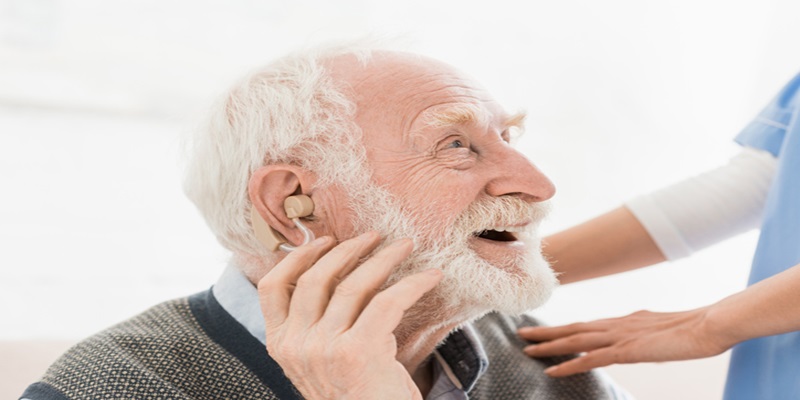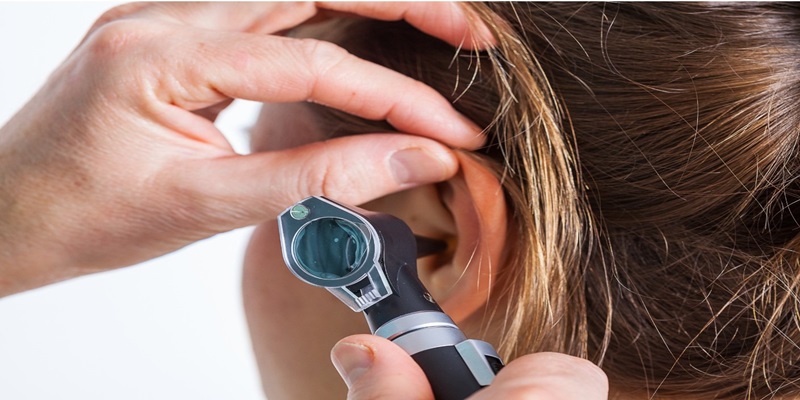Stay Ahead of Hearing Loss: Tips for Aging Adults
As you age, your hearing abilities can vary subtly. Perhaps you're having to turn your television louder or having difficulty listening in a crowded room. These symptoms could be age-related hearing loss, a common problem in older adults that affects millions of Americans. Being aware of the reasons and symptoms and knowing how to manage age-related hearing loss is critical in enjoying your well-being and quality of life.
The Basics of Age-Related Hearing Loss
Presbycusis, or age-related hearing loss, is a slow deterioration in hearing function with age. It tends to occur in both ears and creeps in over a long duration, so it cannot initially be noticed.
Reasons and Risk Factors
Lots of reasons cause age-related hearing loss:
• Aging naturally: The inner ear's delicate structures disintegrate with age
• Long-term loud sound exposure
• Genetics
• Certain medical conditions, for example, high blood pressure, diabetes
Impact on Quality of Life
The loss of hearing, when not taken care of, could have a significant impact on life. It can make one socially socially isolated, and develop depression and mental degradation. Detecting early and getting proper advice could work a long distance in benefiting and keeping one healthy in general.
Common Causes and Symptoms of Hearing Challenges

The aging process naturally creates a condition called presbycusis. It is a slow hearing impairment that occurs when delicate structures in the inner ear disintegrate over a period of years. High-pitched sounds, speech in a crowded room, and not listening in could become challenges.
Age-Related Changes
The aging process naturally creates a state of presbycusis. It is a slow impairment in hearing that occurs when delicate structures in the inner ear disintegrate over years. High-pitched sound, speech in a crowded room, and not listening in could become a challenge.
Prolonged exposure to sound, in work settings or at leisure, can damage hearing. Tinnitus, a ringing in the ear, and difficulty hearing conversation in a room full of background noise can result in noise-induced hearing loss.
Medical Illness
Some medical conditions can impact your hearing. Diabetes, high blood pressure, and autoimmune disease can affect your hearing mechanism. Certain medications, such as antibiotics and chemotherapy drugs, can even affect your hearing at times.
Symptom Identification
Be aware of these symptoms of hearing loss:
• Request for repeat repetitions
• Can turn television and radio volumes louder
• Difficulty with conversation in a background din
• Mumbled speech
Knowing these symptoms and causes in advance, you can act in a timely manner to protect your hearing and get proper care when needed.
Exploring Hearing Aid Options for Older Adults

For hearing loss in seniors, the technology boasts numerous hearing aids. Behind-the-ear, or BTE, aids are convenient for ease and long-lasting battery life, resting comfortably behind your ear. In-the-ear, or ITE, aids mold to your ear and sit in your outer ear, offering a less conspicuous option. For a less conspicuous model, completely in-canal, or CIC, it aids in nesting in your ear canal but with restricted features in a small unit.
Advanced Features
Today's hearing aids have considerable technological advancements. Many have Bluetooth connectivity, with audio streaming directly from smartphones and other devices. Noise reduction technology helps to cancel background sound, making listening in crowded environments easier. Some even have artificial intelligence for automatic setting adaptations in terms of environment and preference.
How to Choose the Best Hearing Aid?
The best hearing aid selection hinges on aspects such as severity of hearing loss, life requirements, and preference. It is best to use an audiologist who can perform a correct hearing evaluation and prescribe appropriate options. Most providers have a try-out period, during which one can try out a variety of options in actual use scenarios before making a decision.
Strategies for Managing Hearing Difficulties
Optimize Your Environment
Optimizing your environment can make a big difference. Simple changes such as reducing background sound, improving lighting for cues, and taking an ideal position in social environments can improve your listening and following conversation skills. Consider utilizing tools such as amplified phones and television captioning to enhance your listening skills even further.
Practice Communication Techniques
Good communication is a two-way street. Let others know about your difficulty hearing and educate them on communicating with you well. That could mean speaking clearly, positioning towards you, and not covering one's mouth when speaking. On your part, practice active listening, and don't hesitate to ask for a repeat when in doubt. Most will be glad to oblige when they understand your requirements.
How to Protect Your Hearing in Old Age?

As we age, our hearing naturally worsens. Nevertheless, with healthy living and a proactive life, you can slow down age-related hearing loss and enjoy better listening experiences long into your senior years.
Protect Your Ears
Loud sounds can accelerate hearing loss. Guard your environment and cover your ears when it matters. Wearing earplugs or sound-canceling headsets in noisy settings, such as at a concert or when working with loud machinery, keeps sound waves muffled and your hearing safe. Turn your dial to a comfortable level when listening via headsets or earpieces.
Exercise and Nutrition
Surprisingly, your overall wellness impacts your hearing. Exercise keeps blood circulating, including in your ear area. Eat a balanced meal rich in vitamins and minerals, particularly ones with antioxidant properties, to maintain your sound system integrity. Omega-3 fatty acid, Vitamin D, and folic acid foods such as fish, leafy greens, and avocado support healthy hearing.
Watching Blood Pressure and Stress
Stress and high blood pressure can damage your hearing. Learn and practice techniques for minimizing stress, such as yoga, and work with your doctor to maintain healthy blood pressure. All of these actions not only promote overall wellness but enable your hearing to age at its best.
Taking That First Step towards Better Hearing Health
As you develop age-related hearing loss, remember that numerous others have gone through similar difficulties, and practical solutions can correct them. By taking care of your hearing, early consultation when hearing loss is noticed, and access to new hearing aids, your life can become increasingly easier to enjoy. Don't allow hearing impairments to hinder your enjoyment of conversation, listening to an audio, or your most valued activities.





